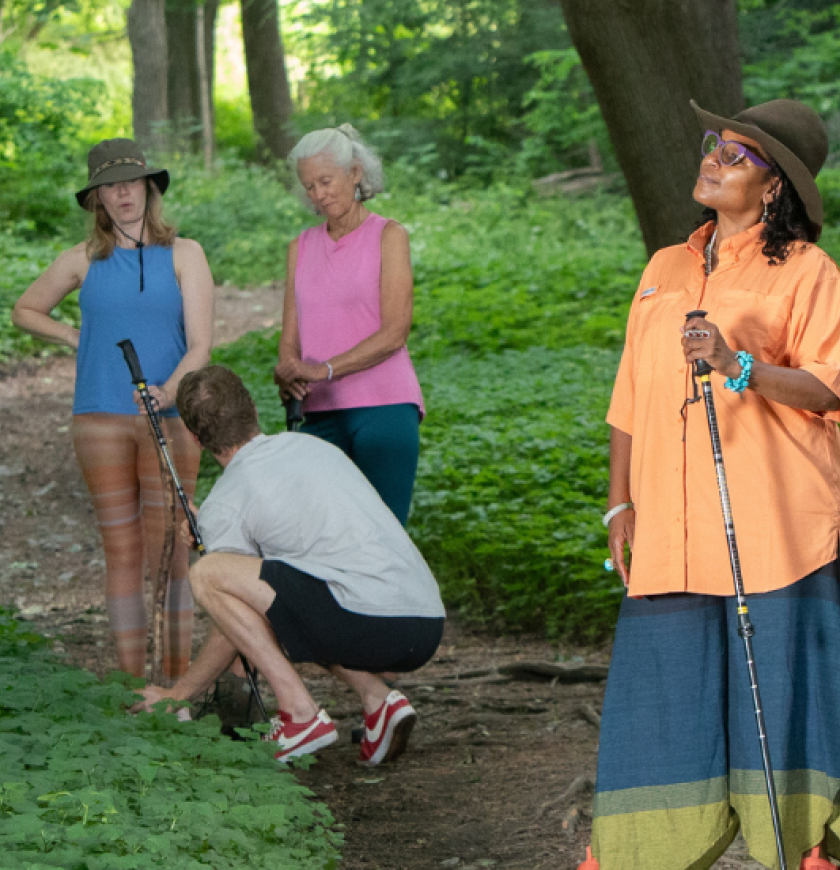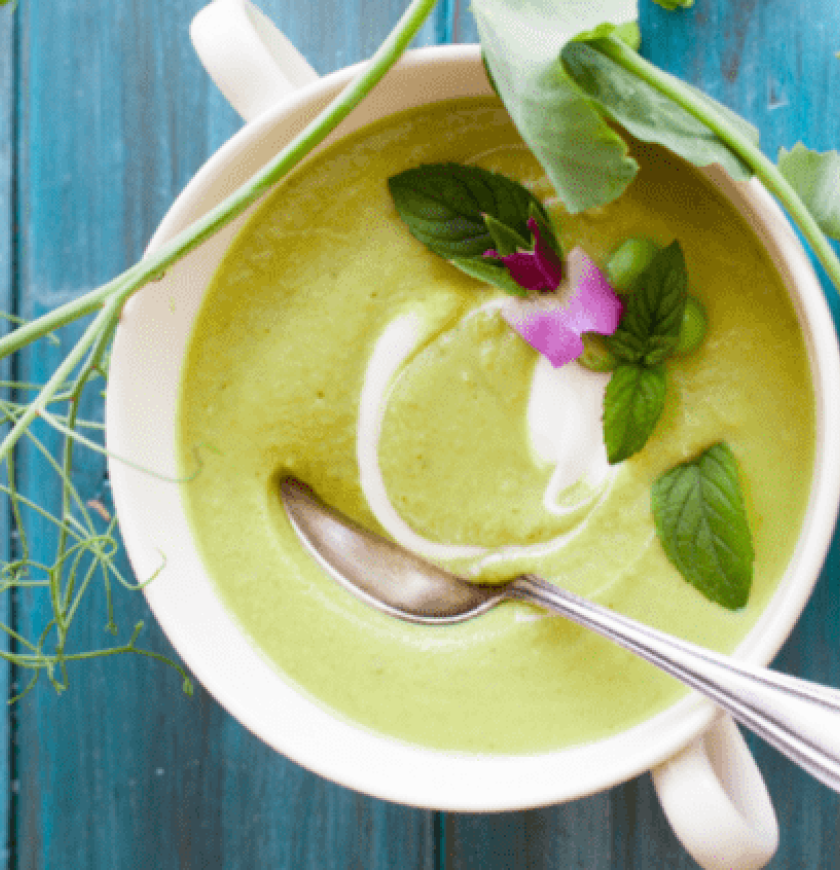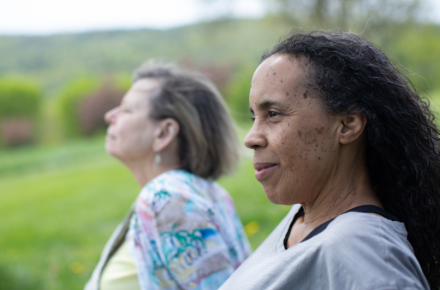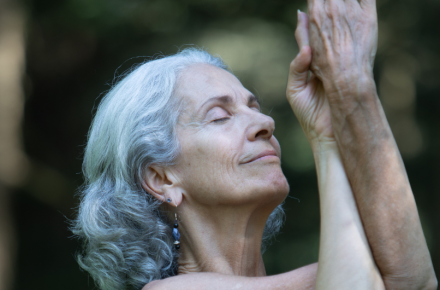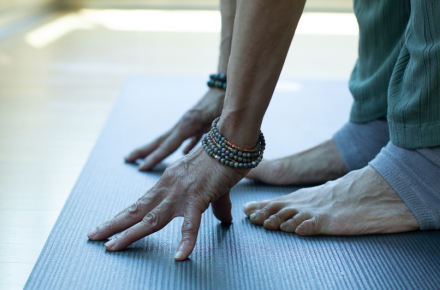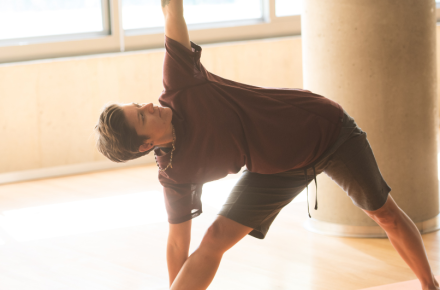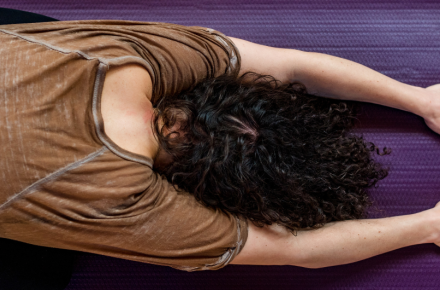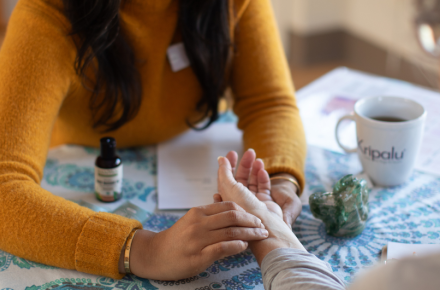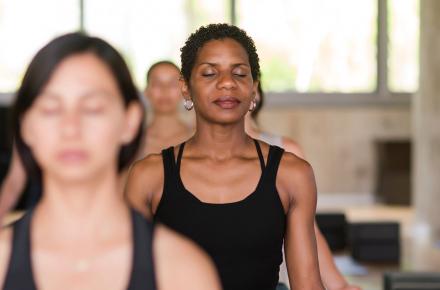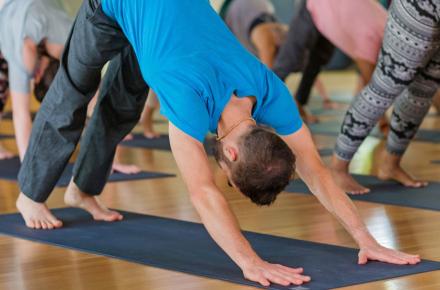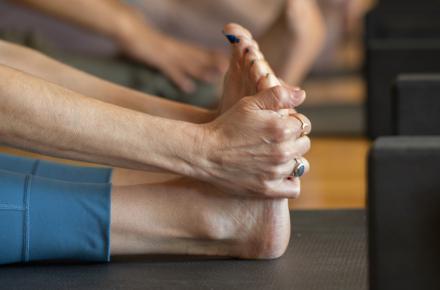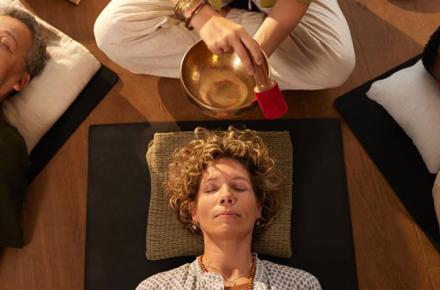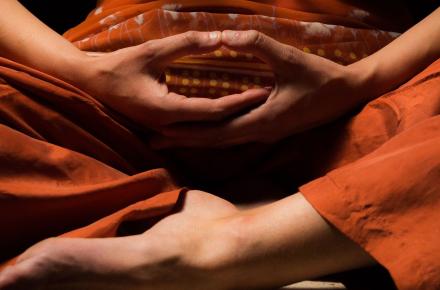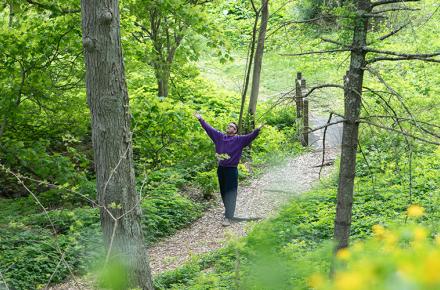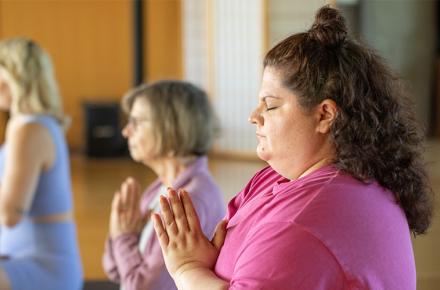Chakras and the Mind-Body Connection


Some years ago, I was lying on a massage table in a dimly lit, lavender-scented room while a massage therapist kneaded my neck. It hurt. The pain caused me to flinch over and over again. “Wow—you’re really tight,” she remarked. Massage therapists work with a lot of necks, so I knew her comment meant my neck was tighter than most.
Sometimes that tightness is more acute than others. Recently, I’ve noticed that when I turn my head while I’m driving, the pain is especially sharp. I almost want to avoid parallel parking because of it.
I could chalk up the stiffness to too much time at the computer and not enough stretching, but yoga teacher Seane Corn, cofounder of the activist organization Off the Mat, Into the World, says that looking at the body through the lens of the chakras would give me an entirely different view of my tight neck.
“The chakras help us look beyond the literal and into the symbolic,” Seane says, adding that neck issues that radiate into the head (like mine) often mean that the individual is very intuitive, but puts reason before mysticism. Yep, that’s me—guilty as charged.
Chakras, Seane explains, are vortexes of electromagnetic energy that both give and receive energy, but emotional wounds and trauma can block them so that they can’t deliver prana, or life force, to the body. What we feel as a result is stress, anxiety, and tension.
An antidote is Chakra Flow Yoga, Seane’s choreographed routine that uses asanas to discharge tension and activate the energy channels of the seven chakras.
“When you practice yoga,” she says, “you release tension and expand the muscles, allowing the emotions embedded in the cells to come out. It’s very common to have an emotional response to yoga, and the chakras give us a road map to understand the body-mind connection.”
They also offer a means of working with the body to build energy or let it go. For example, Seane says each chakra has a shadow emotion associated with it (first chakra is fear; second, guilt; third, shame; fourth, grief; fifth, lies; sixth, illusion; seventh, attachment) and certain asanas can help release the energy that might be trapped in the body as a result of stored emotional pain.
The first chakra, at the base of the spine, is related to survival and our foundation, while the second, below the navel, is related to sexuality and creativity. Leg-engaging and hip-opening postures are useful to release trapped energy in those areas and increase our feelings of groundedness and vitality.
The third chakra (solar plexus) is related to self-confidence and self-esteem; the fourth (the heart) to grief, love, and altruism. Thus, back-bending postures, shoulder-opening postures, and twists are useful to release or enhance these energy states.
The fifth chakra, located at the throat, is related to communication and self-expression. “I’ll have people vocalize to release the neck and the throat,” Seane says, noting that backbends can also be beneficial for this area.
The sixth, located at the third eye, is related to our imagination, intuition, and thoughts; the seventh, at the crown of the head, to connection to Spirit. To release or build energy there, Seane recommends inversions, restorative poses, and meditation.
The process of releasing shadow emotions and other emotional wounds is transformative, according to Seane. “In our wounds, we can find our life purpose,” she says. “When we begin to understand them, we develop wisdom, which leads to understanding, which leads to empathy, which helps us to be in service without judgment. And we become more accepting, so when we’re in the presence of conflict, we’re more grounded, loving, and centered.”
Portland Helmich is the creator, host, and producer of the Kripalu Perspectives podcast series. She has been investigating natural health and healing as a host, reporter, writer, and producer for more than 15 years.

